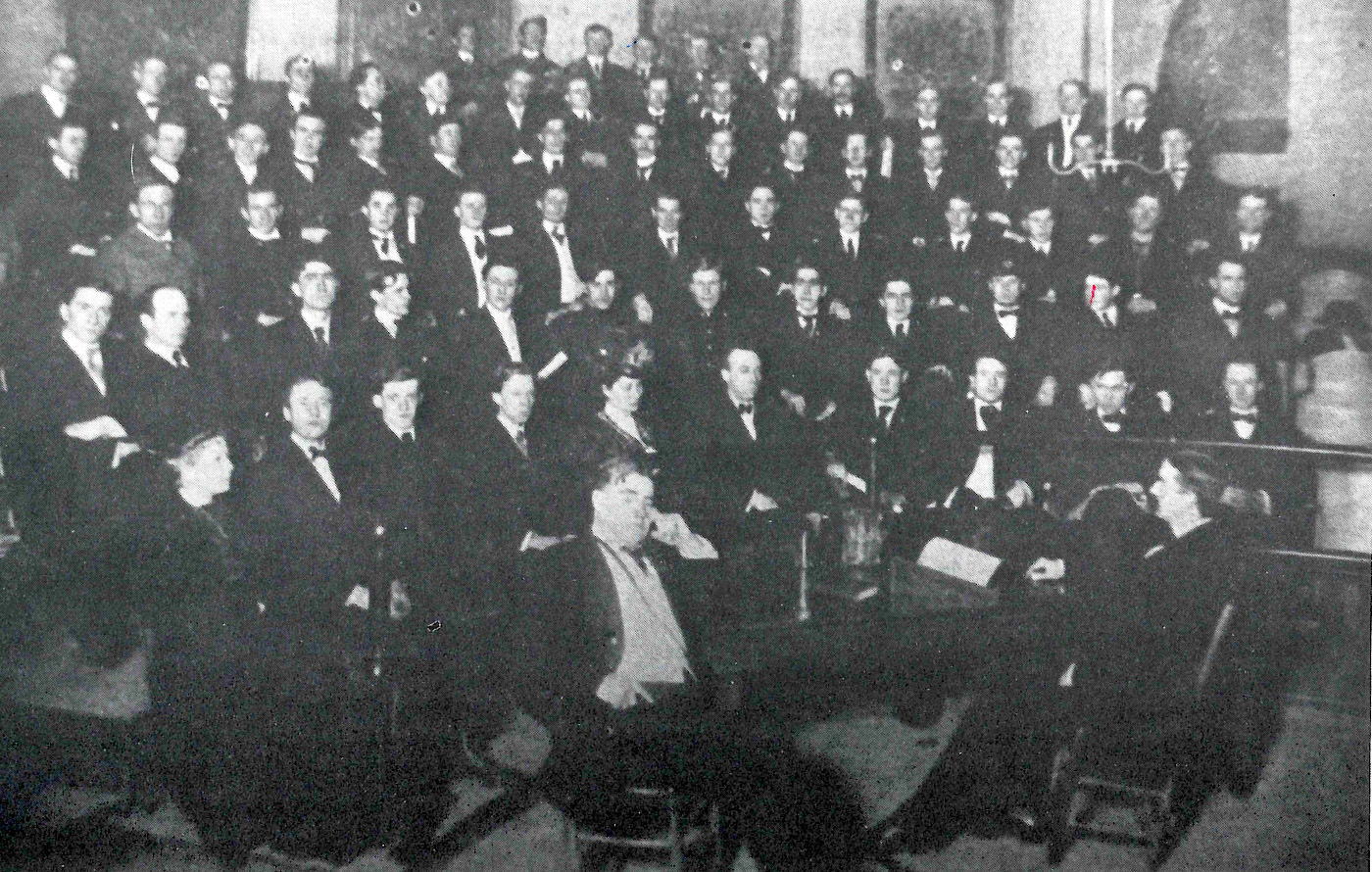Chattanooga is the only large Tennessee metropolitan area that does not have a law school. But that was not the case from 1898 through 1960.
Chattanooga's law school began as the law department of U.S. Grant Memorial University, predecessor to the University of Chattanooga, and was housed in a building that capped the hill overlooking the campus between Oak Street and McCallie Avenue. The law department building was later torn down to be replaced by other brick buildings at the university.
Robert Pritchard, author of the treatise on the law of Wills and Administration of Estates, which was the legal authority on these subjects, was the first dean of the school. After serving for 12 years, Pritchard was replaced by Judge Lewis Shepherd, considered by many to be one of the most skillful and talented lawyers in the history of Chattanooga's legal community.
Charles T. Evans was most closely identified with the development of the law school, serving as dean from 1901 to 1910, and a substantial increase in enrollment. The school became third largest in the South, ranking only behind University of Virginia and University of Texas law schools.
In 1910, the university's law school was dissolved. Evans organized the Chattanooga College of Law, which he headed until his death in 1920. This school was housed in one of the courtrooms at the Hamilton County Courthouse. The faculty consisted of practicing attorneys and elected judges. Judge W.B. Swaney became dean upon Charles Evans' death and served in that capacity until 1946.
World War II drained the Chattanooga College of Law of its students, and the school closed in 1946.
In 1947, Roy McKenzie Sr., president of McKenzie Business School, announced his intention to start a law school, either as a reactivation of the Chattanooga College of Law or as a division of his business school.
Although opposed by the Chattanooga Bar Association, the McKenzie school opened and had, at one time, more than 100 students and some 20 part-time instructors, who were practicing attorneys or judges. The school was located at the old Mizpah Temple at Oak and Lindsay streets. Moot court exercises were held at the Hamilton County Courthouse.
The basis for the opposition by the bar association was an accusation that 14 of the 16 attorneys involved in the Chattanooga Divorce Mill investigation were graduates of the Chattanooga Law School and involved in the granting of uncontested divorces to spouses of soldiers who had been shipped out for military service in Europe and the Pacific -- without proper protection of servicemen's rights under the Federal Soldier and Sailors Relief Act.
Roy McKenzie addressed the Chattanooga Bar Association and asked it to support his new school. The bar voted to cooperate with the school while not approving it. Gus Wood Jr., became the new dean and continued the practice of using part-time professors from the legal and judicial communities.
Tightening standards on eligibility to take the bar examination and a reduction in federal benefits for World War II veterans caused student registration at the law school to decline.
However, Korean War veterans became eligible for educational benefits, and this allowed the Chattanooga College of Law to remain open until 1960. That year the graduating class had only 10 members.
In retrospect, about half of the attorneys in Chattanooga during the first 40 years of the 20th century were graduates of the law school. At one time, all of the judges in the Chancery, Circuit, and Criminal courts were graduates.
Notable graduates from the Chattanooga College of Law included Alexander Guerry ('14), future headmaster of Baylor School; president of the University of Chattanooga; and vice-chancellor of the University of the South. E.B. Baker ('28), a talented trial lawyer, and John Stophel ('55), member of one of Chattanooga's prominent law firms, Chambliss Bahner and Stophel, were both excellent lawyers and community leaders.
Paul Leitner Jr., is one of the surviving graduates ('54) of the Chattanooga College of Law. He is the senior partner at Leitner, Williams, Dooley and Napolitan, one of the leading civil defense firms in the area.
The future will determine whether Chattanooga creates a need for another law school to compete with the other metropolitan areas.
Jerry H. Summers, a practicing attorney with the firm of Summers, Rufolo & Rodgers, also is a published author. For more, visit Chattahistoricalassoc.org or call Lavonne Jolley at 423-886-2090.

